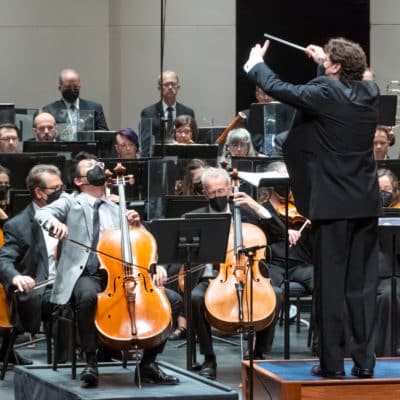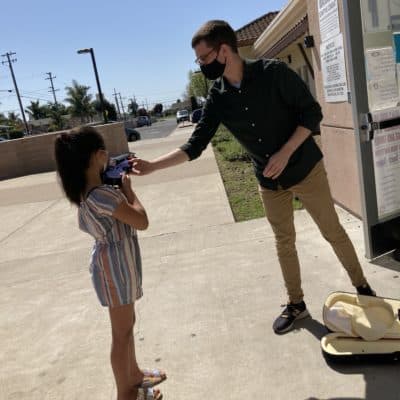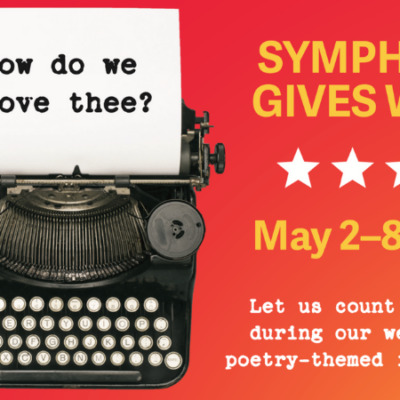The California Symphony’s Sound Minds music education program teaches life skills, raises English and Math test scores, and inspires a community, says Academic Coordinator Sonia Wong.

Sonia Wong is Literacy Coach at E. M. Downer Elementary School in San Pablo, CA, where 94% of students qualify for the federal free or reduced price lunch program and 69% are English language learners. She has been overseeing the Sound Minds program as Academic Coordinator since the launch of the pilot program in 2012.
CSO: You’ve been looking after this program for 6 years now. What changes have you observed in that time?
SW: I’ve observed a lot of changes and surprising growth in our students who’ve participated in the Sound Minds Program. You can see the growth occurring around fourth grade — they start with us in second, and by fourth grade, they just kind of zoom past their classmates in studying, in reading, and just in all kinds of academic areas.

CSO: Can you talk a little about the academic impact of this program?
SW: It’s really important for our students to become really good readers. Every year, we test our students with a program called STAR reading. We hope that our students at mid year will have half a year’s growth. We noticed that our Sound Minds students at every grade level outscored the non Sound Minds students by producing more than half a year’s growth. They’re doing really well in becoming better readers.
They say students’ brains stop developing around 7 years old but with music, they get to continue growing their brains. The kids at Downer Elementary don’t have English spoken at home, and so we teach them English here, and music helps them with their development of language.
CSO: What about social behaviors and growth?
SW: I’ve noticed a lot of social growth with our Sound Minds students. Many teachers tell me that their Sound Minds students are more focused. They listen better, they follow directions better, and they just seem to be able to concentrate a lot more than the non Sound Minds in class. The teachers welcome Sound Minds students — especially in the upper grades — because they know that they are going to get a good quality student that just works really hard. They are really hard workers. It’s really exciting to see them excel.
CSO: What is your wish for the future for Sound Minds?
SW: Students who belong to a group stay in school longer and perform better academically.
So that’s my wish for the Sound Minds students, that they will find their niche in music, and will continue in middle school (which is really hard!), but if you have a group, you can keep it together. And then on into High School: if they have a group they belong to, they will be ready for college.
At the end of the day, we are getting them to be college-ready and career-ready. With the social skills that they develop with Sound Minds, it can really take them far. We’re starting to see that with our alumni, which is really exciting.
Music is an important part of our students’ souls: It’s not just for the academic success that they achieve, but it’s also for their souls.

CSO: Concerts have been at capacity the past couple of years. What do you think is happening there?
SW: I have noticed that more parents and extended families are coming to the concerts. I think the kids are practicing more at home… Maybe the parents see them practice and then want to see the results when they come to the concert!
Fundamentally, our parents want what’s best for their children. They have a certain idea about what it means to play the violin or the cello and what that can do for your life. They have wishes for their children, and maybe for themselves. They might say they always wanted to learn the violin, and now their child gets to do it. And so they’re going to give them the permission to do it and support them as much as they can. They’ll do their best in their busy lives to pick them up, and bring them for concerts, and buy them their dress whites and shoes.
We are a poor community but they still have hopes and dreams, just as all other parents have for their kids.
CSO: Any message you’d like to pass along to California Symphony supporters?
SW: Sound Minds is a real partnership between the California Symphony and Downer Elementary School. We believe in the program so much that we use funding that could be used in other areas to support Sound Minds, along with the California Symphony. So we are very grateful to Symphony donors for the money, and the teachers that they provide for our students. We couldn’t do it without the California Symphony.
We’d like to really say thank you for making us a part of your community.
You can support the Sound Minds program and other music education and community engagement initiatives, making a difference in the lives of thousands of people in the Bay Area, when you give during the Fall Matching Challenge—our largest fundraiser of the 2019/20 season. Your gift is matched and your impact doubled through October 31, 2019. Donate online or call the office at 925.280.2490 for assistance.




